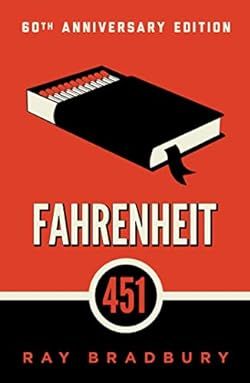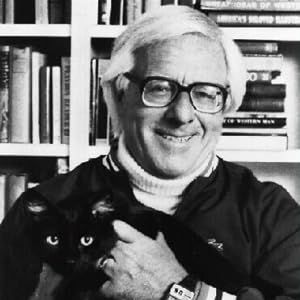Fahrenheit 451Audiobook
4.6
-
52,920 ratings
Nearly seventy years after its original publication, Ray Bradbury’s internationally acclaimed novel Fahrenheit 451 stands as a classic of world literature set in a bleak, dystopian future. Today its message has grown more relevant than ever before.
Guy Montag is a fireman. His job is to destroy the most illegal of commodities, the printed book, along with the houses in which they are hidden. Montag never questions the destruction and ruin his actions produce, returning each day to his bland life and wife, Mildred, who spends all day with her television “family.” But when he meets an eccentric young neighbor, Clarisse, who introduces him to a past where people didn’t live in fear and to a present where one sees the world through the ideas in books instead of the mindless chatter of television, Montag begins to question everything he has ever known.
Fahrenheit 451 is a 1953 dystopian novel by American writer Ray Bradbury. It presents a future American society where books have been outlawed and "firemen" burn any that are found. The novel follows in the viewpoint of Guy Montag, a fireman who soon becomes disillusioned with his role of censoring literature and destroying knowledge, eventually quitting his job and committing himself to the preservation of literary and cultural writings.
Fahrenheit 451 was written by Bradbury during the Second Red Scare and the McCarthy era, inspired by the book burnings in Nazi Germany and by ideological repression in the Soviet Union. Bradbury's claimed motivation for writing the novel has changed multiple times. In a 1956 radio interview, Bradbury said that he wrote the book because of his concerns about the threat of burning books in the United States. In later years, he described the book as a commentary on how mass media reduces interest in reading literature. In a 1994 interview, Bradbury cited political correctness as an allegory for the censorship in the book, calling it "the real enemy these days" and labelling it as "thought control and freedom of speech control."
Read more
Kindle
$12.99
Available instantly
Audiobook
$0.00
with membership
Hardcover
$19.49
Paperback
$8.36
Ships from
Amazon.com
Payment
Secure transaction
ISBN-10
9781451673319
ISBN-13
978-1451673319
Print length
249 pages
Language
English
Publisher
Simon & Schuster
Publication date
January 10, 2012
Dimensions
5.5 x 0.8 x 8.44 inches
Item weight
2.31 pounds
Popular highlights in this book
We stand against the small tide of those who want to make everyone unhappy with conflicting theory and thought.
Highlighted by 9,086 Kindle readers
That’s the good part of dying; when you’ve nothing to lose, you run any risk you want.
Highlighted by 6,140 Kindle readers
Those who don’t build must burn. It’s as old as history and juvenile delinquents.
Highlighted by 5,023 Kindle readers
Product details
ASIN :
B0064CPN7I
File size :
11605 KB
Text-to-speech :
Enabled
Screen reader :
Supported
Enhanced typesetting :
Enabled
Word wise :
Enabled
Editorial reviews
“Brilliant . . . Startling and ingenious . . . Mr. Bradbury’s account of this insane world, which bears many alarming resemblances to our own, is fascinating.” —Orville Prescott, The New York Times
“A masterpiece . . . A glorious American classic everyone should read: It’s life-changing if you read it as a teen, and still stunning when you reread it as an adult.” —Alice Hoffman, The Boston Globe
“The sheer lift and power of a truly original imagination exhilarates . . . His is a very great and unusual talent.” —Christopher Isherwood, Tomorrow
“One of this country’s most beloved writers . . . A great storyteller, sometimes even a mythmaker, a true American classic.” —Michael Dirda, The Washington Post
From the Inside Flap
Nowadays firemen start fires. Fireman Guy Montag loves to rush to a fire and watch books burn up. Then he met a seventeen-year old girl who told him of a past when people were not afraid, and a professor who told him of a future where people could think. And Guy Montag knew what he had to do....
About the Author
Ray Bradbury (1920–2012) was the author of more than three dozen books, including Fahrenheit 451, The Martian Chronicles, The Illustrated Man, and Something Wicked This Way Comes, as well as hundreds of short stories. He wrote for the theater, cinema, and TV, including the screenplay for John Huston’s Moby Dick and the Emmy Award–winning teleplay The Halloween Tree, and adapted for television sixty-five of his stories for The Ray Bradbury Theater. He was the recipient of the 2000 National Book Foundation’s Medal for Distinguished Contribution to American Letters, the 2007 Pulitzer Prize Special Citation, and numerous other honors.
Read more
Sample
Introduction
Sometimes writers write about a world that does not yet exist. We do it for a hundred reasons. (Because it’s good to look forward, not back. Because we need to illuminate a path we hope or we fear humanity will take. Because the world of the future seems more enticing or more interesting than the world of today. Because we need to warn you. To encourage. To examine. To imagine.) The reasons for writing about the day after tomorrow, and all the tomorrows that follow it, are as many and as varied as the people writing.
This is a book of warning. It is a reminder that what we have is valuable, and that sometimes we take what we value for granted.
There are three phrases that make possible the world of writing about the world of not-yet (you can call it science fiction or speculative fiction; you can call it anything you wish) and they are simple phrases:
What if . . . ?
If only . . .
If this goes on . . .
“What if . . . ?” gives us change, a departure from our lives. (What if aliens landed tomorrow and gave us everything we wanted, but at a price?)
“If only . . .” lets us explore the glories and dangers of tomorrow. (If only dogs could talk. If only I were invisible.)
“If this goes on . . .” is the most predictive of the three, although it doesn’t try to predict an actual future with all its messy confusion. Instead, “If this goes on . . .” fiction takes an element of life today, something clear and obvious and normally something troubling, and asks what would happen if that thing, that one thing, became bigger, became all-pervasive, changed the way we thought and behaved. (If this goes on, all communication everywhere will be through text messages or computers, and direct speech between two people, without a machine, will be outlawed.)
It’s a cautionary question, and it lets us explore cautionary worlds.
People think—wrongly—that speculative fiction is about predicting the future, but it isn’t; or if it is, it tends to do a rotten job of it. Futures are huge things that come with many elements and a billion variables, and the human race has a habit of listening to predictions for what the future will bring and then doing something quite different.
What speculative fiction is really good at is not the future but the present—taking an aspect of it that troubles or is dangerous, and extending and extrapolating that aspect into something that allows the people of that time to see what they are doing from a different angle and from a different place. It’s cautionary.
Fahrenheit 451 is speculative fiction. It’s an “If this goes on . . .” story. Ray Bradbury was writing about his present, which is our past. He was warning us about things; some of those things are obvious, and some of them, half a century later, are harder to see.
Listen.
If someone tells you what a story is about, they are probably right.
If they tell you that that is all the story is about, they are very definitely wrong.
Read more
About the authors
Ray Bradbury
In a career spanning more than seventy years, Ray Bradbury, who died on June 5, 2012, at the age of 91, inspired generations of readers to dream, think, and create. A prolific author of hundreds of short stories and close to fifty books, as well as numerous poems, essays, operas, plays, teleplays, and screenplays, Bradbury was one of the most celebrated writers of our time. His groundbreaking works include Fahrenheit 451, The Martian Chronicles, The Illustrated Man, Dandelion Wine, and Something Wicked This Way Comes. He wrote the screen play for John Huston's classic film adaptation of Moby Dick, and was nominated for an Academy Award. He adapted sixty-five of his stories for television's The Ray Bradbury Theater, and won an Emmy for his teleplay of The Halloween Tree. He was the recipient of the 2000 National Book Foundation Medal for Distinguished Contribution to American Letters, the 2004 National Medal of Arts, and the 2007 Pulitzer Prize Special Citation, among many honors.
Throughout his life, Bradbury liked to recount the story of meeting a carnival magician, Mr. Electrico, in 1932. At the end of his performance Electrico reached out to the twelve-year-old Bradbury, touched the boy with his sword, and commanded, "Live forever!" Bradbury later said, "I decided that was the greatest idea I had ever heard. I started writing every day. I never stopped."
Read more
Reviews
Customer reviews
4.6 out of 5
52,920 global ratings
Robbie Cheadle
5
An exceptional book and an inspired story.
Reviewed in the United States on July 18, 2019
Verified Purchase
I listened to the audio book of Fahrenheit 451, narrated by Tim Robbins. The narration was excellent and Tim Robbins certainly made the most of Ray Bradbury's very vigorous and to the point style of writing in certain parts of the book to such an extent that I felt as if I was running with Guy Montag and experiencing his fear, pounding heart and uncertainty.
This is one of the most unique dystopian novels I have read and is right up there with H.G. Wells with its incredible philosophical insight into human society, what makes us tick individually and as a group and how it could all go incredibly wrong if mankind, as a group, makes incorrect choices along the pathway leading into the future. What makes this book incredibly scary is how horribly possible it all is and how awful the black cloud of illiteracy and ignorance is and how it limits people's choices and abilities to progress and grow. All this being said, however, this book does end on an optimistic and hopeful note which is invigorating and uplifting, especially given the momentous issues that are currently staring mankind in the face like climate crisis and the fourth industrial revolution.
Guy Montag is a fireman, whose job involves the destruction of books and the belongings and homes of people who go against the law of the nation and keep and read books. The reader is introduced to Guy in a happy state of enjoyment over his current burning and you get the impression that he is happy and fulfilled in his life and his work.
Coming out of the train station at the end of his work shift, Guy meets Clarice, an unusual young woman who is a thinker. The reader quickly realises that she is incredibly unique in this time of book burning and technological dominance over creativity, thinking and, in essence, the spirit of man. Guy listens to what Clarice has to say, nothing specific, but a series of innocent ramblings with enough substance to make him think. She ends the evening by asking him if he is happy. Is he happy? As this leading question and an immediate and alarming set of circumstances in his home life, cause Guy Montag to consider the meaning of his whole life and the lives of those around him, he realises that he is not happy in his lifestyle of forced gaiety and non-conflict. He also comes to see that no-one else around him is happy either and that their lifestyles are meaningless and also emotionless.
The beauty of this story is in it unerring ability to make the reader question his/her existence and the meaning of life. In the same manner as HG Wells depicted the Eloi, in his book The Time Machine, as being human creatures who have evolved into childlike and uninspired creature through living a Utopian type existence where there every need is met and there exists no conflict or hardship or anything else to spark thinking, innovation and progress. I saw parallels in the thinking process between HG Wells and Ray Bradbury and the recognition that a perfect Utopian environment would ultimately lead to the downfall of mankind as it would strip away our survival skills and instincts and we would not be able to cope with the resurgence of conflict and evil which is always bound to reappear in life. Perfection can only ever be a thin veneer over the underlying issues inherent in societies and human interaction which each other.
This is an exceptional book and an inspired story.
Read more
42 people found this helpful
Trudi Martin
5
A Science Fiction Clssic
Reviewed in the United States on May 28, 2024
Verified Purchase
Although writen in the 1950's FAHRENHEIT 451 is still relvant today. In the novel's world all books are banned, whereas in today's society select books are banned. Several of Bradbury's predictions have come true or are threatened. Beside that, it is a good read. It is Ray Bradbury t his best.
JR Matson
5
Great book - in great shape
Reviewed in the United States on May 16, 2024
Verified Purchase
On time on budget and book was great - 5 rating on all 3
Top Ray Bradbury titles
View all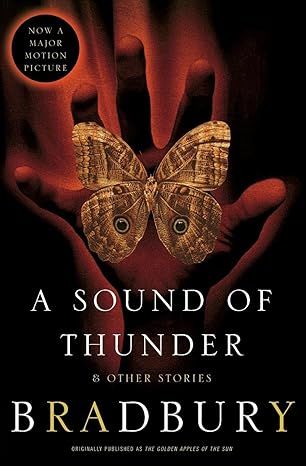
A Sound of Thunder and Other Stories
4.5
-
524
$13.09
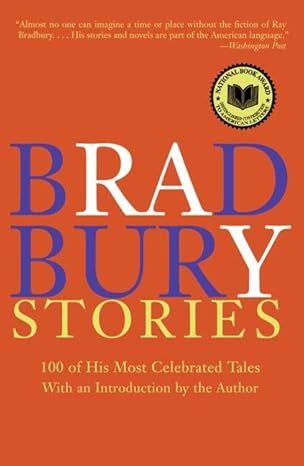
Bradbury Stories: 100 of His Most Celebrated Tales
4.7
-
1,363
$11.60
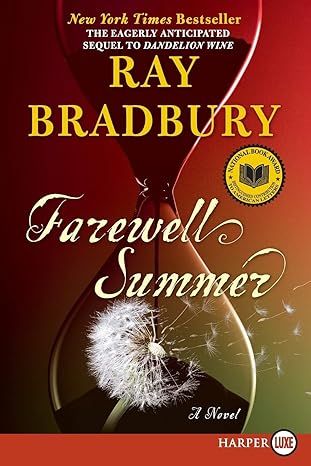
Farewell Summer
4.3
-
731
$0.99
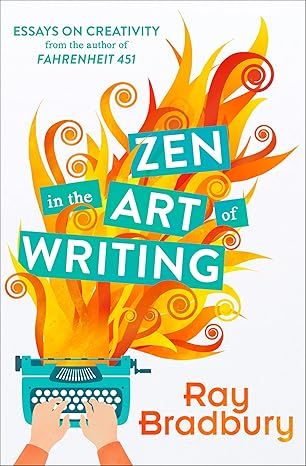
Zen in the Art of Writing
4.4
-
1,527
$14.33
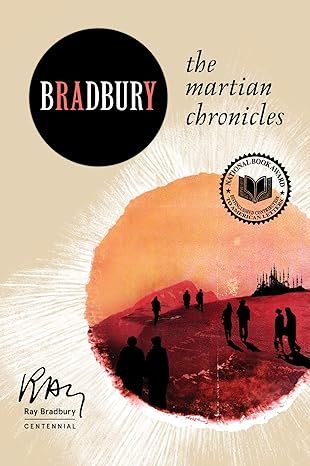
The Martian Chronicles
4.5
-
7,293
$0.99
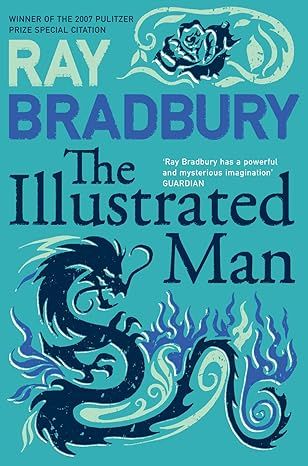
The Illustrated Man (Flamingo Modern Classics)
4.6
-
4,344
$9.31
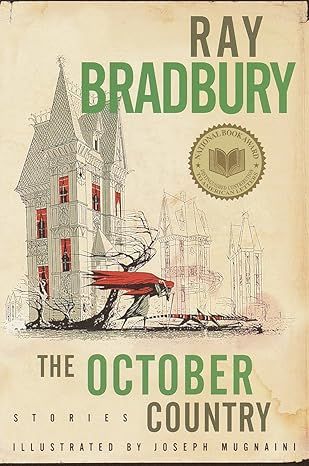
The October Country: Stories
4.6
-
1,736
$12.99
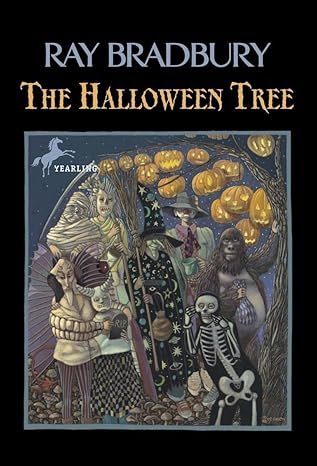
The Halloween Tree
4.6
-
3,112
$1.99
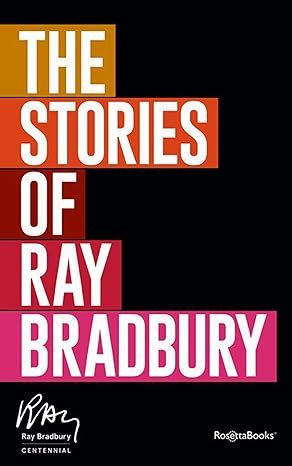
The Stories of Ray Bradbury: Introduction by Christopher Buckley (Everyman's Library Contemporary Classics Series)
4.7
-
1,003
$2.99

Dandelion Wine (English and French Edition)
4.5
-
3,529
$14.36
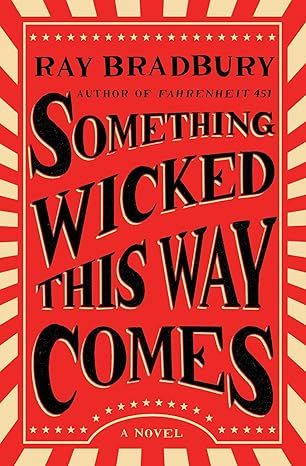
Something Wicked This Way Comes: A Novel
4.4
-
6,928
$0.99
Best sellers
View all
The Tuscan Child
4.2
-
100,022
$8.39

The Thursday Murder Club: A Novel (A Thursday Murder Club Mystery)
4.3
-
155,575
$6.33

Sapiens: A Brief History of Humankind
4.6
-
140,302
$13.49

The Butterfly Garden (The Collector, 1)
4.3
-
88,556
$9.59

Things We Hide from the Light (Knockemout Series, 2)
4.4
-
94,890
$11.66

The Last Thing He Told Me: A Novel
4.3
-
154,085
$2.99

The Perfect Marriage: A Completely Gripping Psychological Suspense
4.3
-
143,196
$9.47

The Coworker
4.1
-
80,003
$13.48

First Lie Wins: A Novel (Random House Large Print)
4.3
-
54,062
$14.99

Mile High (Windy City Series Book 1)
4.4
-
59,745
$16.19

Layla
4.2
-
107,613
$8.99

The Locked Door
4.4
-
94,673
$8.53
